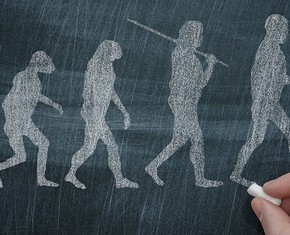The views expressed in our content reflect individual perspectives and do not represent the authoritative views of the Baha'i Faith.
We spend a great deal of time here at BahaiTeachings.org on the basic Baha’i principle of the agreement of science and religion – but does science have all the answers? Not hardly.
Every responsible scientist readily and humbly admits that science itself does not have the answers for many of the most important human questions. Our highly scientific age, however, tempts us to think the opposite – that science can or someday will provide all the answers to life’s big questions.
Yes, science and technology seem to solve so many of our problems, or at least offer potential future solutions. Maybe that’s why some people have turned science into their quasi-religion, seeing it as a broader belief system rather than a methodology meant for finding ways to understand the natural world. But science makes a poor belief system, because skepticism drives science. Science asks us to suspend any final judgment or strong belief, because its conclusions are always subject to revision by new discoveries.
RELATED: How Meditation Can Help Drive Scientific Discovery
So in thinking about the big questions science can’t answer, I’ve compiled a list drawn not only from my own curiosity and research, but also from the writings of a number of prominent scientists, philosophers and thinkers. In this series of essays, we’ll explore those questions, and see if we can find answers in the Baha’i teachings that have eluded science so far.
From the beginning, I realized that these kinds of questions fit into two distinct categories: the questions science can’t answer, and those science simply hasn’t answered yet. Science is a powerful tool, and since 1833, when the word “scientist” was first coined, many people have doubted its ability to uncover the deepest secrets and truths of the material universe. For the most part, those people have been wrong.
Science, for instance, once generally accepted the theory of eugenics – the now-completely discredited idea of “scientific racism,” a theory that humanity consists of physically discrete superior or inferior races. Popular among not only scientists but with governmental leaders and philosophers at one time, it led to Nazism’s so-called “final solution” and other genocidal atrocities. The fields of human evolutionary genetics and contemporary anthropology have not only proven eugenics completely false, but have provided a massive body of scientific evidence for the genetic oneness of all racial groups.
In astronomy, we of course have moved from once believing that the Earth functioned as the center of the known universe to the heliocentric model and then to the increasing realization that our small blue planet has absolutely no claim to singularity or uniqueness. In another famous case, Albert Einstein, who originally believed in a static universe and wrote scientific papers attempting to prove his contention, had to be convinced that the universe was actually expanding by the scientist Edwin Hubble. Einstein called his original conclusion “the greatest blunder” of his entire scientific career.
Despite its history of incorrect conclusions, science dominates modern thought – as it should. We have built an unprecedented civilization and body of knowledge, and we owe much of that to the advancements made possibly by science. In fact, the Baha’i principle of the agreement of science and religion actually privileges science over blind faith, dogma and religious tradition. The Baha’i Writings say: “There is no contradiction between true religion and science. When a religion is opposed to science it becomes mere superstition: that which is contrary to knowledge is ignorance. How can a man believe to be a fact that which science has proved to be impossible? If he believes in spite of his reason, it is rather ignorant superstition than faith. The true principles of all religions are in conformity with the teachings of science.”
The Baha’i Writings also say that “… religion and science are in complete agreement. Every religion which is not in accordance with established science is superstition. Religion must be reasonable. If it does not square with reason, it is superstition and without foundation.”
RELATED: The Scientific Religion – The Baha’is
Online you’ll find literally hundreds of lists of questions science hasn’t answered yet – what is dark energy, why do cats purr, how does gravity really work, why do bicycles stay upright, how long does a proton live, etc., etc. Reviewing them, I tried to separate those types of as-yet-unanswered questions about material existence from the bigger kind – the ones science isn’t likely to ever answer, because the nature of the question itself goes beyond the boundaries of scientific inquiry. This list, then, attempts to separate the purely physical from the metaphysical or the spiritual, and focus on the big questions:
1. Why am I here?
2. Do I have a soul?
3. What is my purpose?
4. Does the universe have a beginning?
5. Does the universe have boundaries?
6. Why is there something rather than nothing?
7. Does God exist?
8. Does humanity need religion?
9. How should I live?
So let’s examine these profound questions one by one in this series of essays, and decide whether we can discover the “complete agreement” between religion and science that the Baha’i teachings promise.
You May Also Like
Comments

















― Deepak Chopra, You Are the Universe: Discovering Your Cosmic Self and Why It Matters